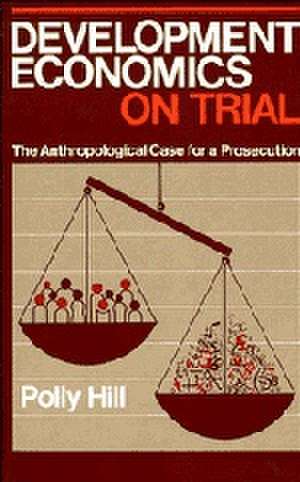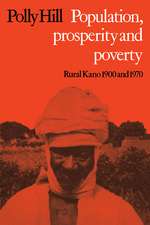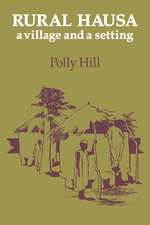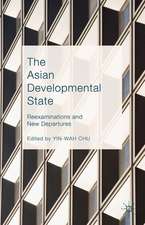Development Economics on Trial: The Anthropological Case for a Prosecution
Autor Polly Hillen Limba Engleză Paperback – 25 iun 1986
Preț: 316.64 lei
Nou
Puncte Express: 475
Preț estimativ în valută:
60.59€ • 63.43$ • 50.13£
60.59€ • 63.43$ • 50.13£
Carte tipărită la comandă
Livrare economică 07-21 aprilie
Preluare comenzi: 021 569.72.76
Specificații
ISBN-13: 9780521310963
ISBN-10: 0521310962
Pagini: 216
Dimensiuni: 140 x 216 x 13 mm
Greutate: 0.25 kg
Editura: Cambridge University Press
Colecția Cambridge University Press
Locul publicării:Cambridge, United Kingdom
ISBN-10: 0521310962
Pagini: 216
Dimensiuni: 140 x 216 x 13 mm
Greutate: 0.25 kg
Editura: Cambridge University Press
Colecția Cambridge University Press
Locul publicării:Cambridge, United Kingdom
Cuprins
Acknowledgments; Preface; Preamble; Appendix; 1. Why country people are not peasants; 2. The vain search for universal generalizations: the relevance of economic inequality; 3. The vain search for universal generalizations: The poor quality of official statistics; 4. The vain search for universal generalizations: historicist fallacies; 5. Pause: how can the impasse be resolved?; 6. The logical necessity for economic inequality within rural communities; 7. The farming household: its defects as a statistical unit; 8. The need to be indebted; 9. The flexibility of inheritance systems; 10. The neglect of farm-labouring systems; 11. Misconceptions about migration; 12. The neglect of women; 13. The sale of farmland; 14. Rural class stratification? Postscript; Glossary and place names; References; Index.
Descriere
This book examines the gulf that separates development economics from economic anthorpology.



















